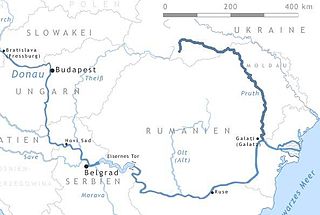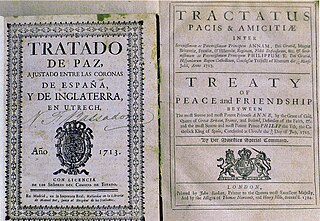
1626 (MDCXXVI) was a common year starting on Thursday of the Gregorian calendar and a common year starting on Sunday of the Julian calendar, the 1626th year of the Common Era (CE) and Anno Domini (AD) designations, the 626th year of the 2nd millennium, the 26th year of the 17th century, and the 7th year of the 1620s decade. As of the start of 1626, the Gregorian calendar was 10 days ahead of the Julian calendar, which remained in localized use until 1923.

The 1700s decade ran from January 1, 1700, to December 31, 1709.

1690 (MDCXC) was a common year starting on Sunday of the Gregorian calendar and a common year starting on Wednesday of the Julian calendar, the 1690th year of the Common Era (CE) and Anno Domini (AD) designations, the 690th year of the 2nd millennium, the 90th year of the 17th century, and the 1st year of the 1690s decade. As of the start of 1690, the Gregorian calendar was 10 days ahead of the Julian calendar, which remained in localized use until 1923.

1617 (MDCXVII) was a common year starting on Sunday of the Gregorian calendar and a common year starting on Wednesday of the Julian calendar, the 1617th year of the Common Era (CE) and Anno Domini (AD) designations, the 617th year of the 2nd millennium, the 17th year of the 17th century, and the 8th year of the 1610s decade. As of the start of 1617, the Gregorian calendar was 10 days ahead of the Julian calendar, which remained in localized use until 1923.

The 1680s decade ran from January 1, 1680, to December 31, 1689.

1685 (MDCLXXXV) was a common year starting on Monday of the Gregorian calendar and a common year starting on Thursday of the Julian calendar, the 1685th year of the Common Era (CE) and Anno Domini (AD) designations, the 685th year of the 2nd millennium, the 85th year of the 17th century, and the 6th year of the 1680s decade. As of the start of 1685, the Gregorian calendar was 10 days ahead of the Julian calendar, which remained in localized use until 1923.
The 1710s decade ran from January 1, 1710 to December 31, 1719.

1804 (MDCCCIV) was a leap year starting on Sunday of the Gregorian calendar and a leap year starting on Friday of the Julian calendar, the 1804th year of the Common Era (CE) and Anno Domini (AD) designations, the 804th year of the 2nd millennium, the 4th year of the 19th century, and the 5th year of the 1800s decade. As of the start of 1804, the Gregorian calendar was 12 days ahead of the Julian calendar, which remained in localized use until 1923.

1758 (MDCCLVIII) was a common year starting on Sunday of the Gregorian calendar and a common year starting on Thursday of the Julian calendar, the 1758th year of the Common Era (CE) and Anno Domini (AD) designations, the 758th year of the 2nd millennium, the 58th year of the 18th century, and the 9th year of the 1750s decade. As of the start of 1758, the Gregorian calendar was 11 days ahead of the Julian calendar, which remained in localized use until 1923.

1711 (MDCCXI) was a common year starting on Thursday of the Gregorian calendar and a common year starting on Monday of the Julian calendar, the 1711th year of the Common Era (CE) and Anno Domini (AD) designations, the 711th year of the 2nd millennium, the 11th year of the 18th century, and the 2nd year of the 1710s decade. As of the start of 1711, the Gregorian calendar was 11 days ahead of the Julian calendar, which remained in localized use until 1923.

1745 (MDCCXLV) was a common year starting on Friday of the Gregorian calendar and a common year starting on Tuesday of the Julian calendar, the 1745th year of the Common Era (CE) and Anno Domini (AD) designations, the 745th year of the 2nd millennium, the 45th year of the 18th century, and the 6th year of the 1740s decade. As of the start of 1745, the Gregorian calendar was 11 days ahead of the Julian calendar, which remained in localized use until 1923.

1726 (MDCCXXVI) was a common year starting on Tuesday of the Gregorian calendar and a common year starting on Saturday of the Julian calendar, the 1726th year of the Common Era (CE) and Anno Domini (AD) designations, the 726th year of the 2nd millennium, the 26th year of the 18th century, and the 7th year of the 1720s decade. As of the start of 1726, the Gregorian calendar was 11 days ahead of the Julian calendar, which remained in localized use until 1923.

The 1550s decade ran from January 1, 1550, to December 31, 1559.

1717 (MDCCXVII) was a common year starting on Friday of the Gregorian calendar and a common year starting on Tuesday of the Julian calendar, the 1717th year of the Common Era (CE) and Anno Domini (AD) designations, the 717th year of the 2nd millennium, the 17th year of the 18th century, and the 8th year of the 1710s decade. As of the start of 1717, the Gregorian calendar was 11 days ahead of the Julian calendar, which remained in localized use until 1923.

1719 (MDCCXIX) was a common year starting on Sunday of the Gregorian calendar and a common year starting on Thursday of the Julian calendar, the 1719th year of the Common Era (CE) and Anno Domini (AD) designations, the 719th year of the 2nd millennium, the 19th year of the 18th century, and the 10th and last year of the 1710s decade. As of the start of 1719, the Gregorian calendar was 11 days ahead of the Julian calendar, which remained in localized use until 1923.

1713 (MDCCXIII) was a common year starting on Sunday of the Gregorian calendar and a common year starting on Thursday of the Julian calendar, the 1713th year of the Common Era (CE) and Anno Domini (AD) designations, the 713th year of the 2nd millennium, the 13th year of the 18th century, and the 4th year of the 1710s decade. As of the start of 1713, the Gregorian calendar was 11 days ahead of the Julian calendar, which remained in localized use until 1923.

1708 (MDCCVIII) was a leap year starting on Sunday of the Gregorian calendar and a leap year starting on Thursday of the Julian calendar, the 1708th year of the Common Era (CE) and Anno Domini (AD) designations, the 708th year of the 2nd millennium, the 8th year of the 18th century, and the 9th year of the 1700s decade. As of the start of 1708, the Gregorian calendar was 11 days ahead of the Julian calendar, which remained in localized use until 1923.

1701 (MDCCI) was a common year starting on Saturday of the Gregorian calendar and a common year starting on Wednesday of the Julian calendar, the 1701st year of the Common Era (CE) and Anno Domini (AD) designations, the 701st year of the 2nd millennium, the 1st year of the 18th century, and the 2nd year of the 1700s decade. As of the start of 1701, the Gregorian calendar was 11 days ahead of the Julian calendar, which remained in localized use until 1923.

1686 (MDCLXXXVI) was a common year starting on Tuesday of the Gregorian calendar and a common year starting on Friday of the Julian calendar, the 1686th year of the Common Era (CE) and Anno Domini (AD) designations, the 686th year of the 2nd millennium, the 86th year of the 17th century, and the 7th year of the 1680s decade. As of the start of 1686, the Gregorian calendar was 10 days ahead of the Julian calendar, which remained in localized use until 1923.

1678 (MDCLXXVIII) was a common year starting on Saturday of the Gregorian calendar and a common year starting on Tuesday of the Julian calendar, the 1678th year of the Common Era (CE) and Anno Domini (AD) designations, the 678th year of the 2nd millennium, the 78th year of the 17th century, and the 9th year of the 1670s decade. As of the start of 1678, the Gregorian calendar was 10 days ahead of the Julian calendar, which remained in localized use until 1923.


















